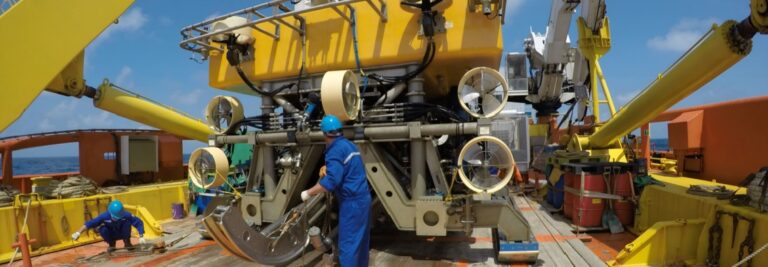United States and Taiwan Step Up Cybersecurity Cooperation Amid Uptick in China’s Cyber Offensive
On September 17, the director of the American Institute in Taiwan (AIT)—the United States de facto embassy in the island—delivered a policy speech that underscored an important new frontier of security cooperation between the two countries. At the “Hacking for Good: AI & Cybersecurity” forum, Brent Christensen, the de facto US ambassador to Taiwan, revealed that the United States will for the first time co-host with Taiwan a cybersecurity exercise that will be held in Taiwan in early November.
The drill named the Cyber Offensive and Defensive Exercises is scheduled to last for five days. While the United States has reportedly observed similar exercises in the past, this is the first time that the United States will send a team to participate in the multilateral exercise that will reportedly bring together teams from 15 countries to address simulated cyberthreats from North Korea, targeting social engineering, critical infrastructure protection, and financial crimes.
According to Taiwan’s vice premier, Chen Chi-mai (陳其邁), who also heads the Cyber Security Department within the Executive Yuan, “Taiwan is hoping that the debut cyber security drill will not only prepare the government for future attacks but also help Taiwan and other countries to form a joint cyber security network.” The exercise is modeled after Cyber Storm—the biennial cybersecurity exercise hosted by the US Department of Homeland Security (DHS).
The Cyber Storm exercise was first held in 2006 and is the most extensive US government-sponsored cybersecurity exercise of its kind. The exercise regularly includes 12 international partners and involves an international exercise with the International Watch and Warning Network (IWWN) that included Australia, Canada, Denmark, France, Germany, Hungary, Japan, the Netherlands, Norway, Sweden, Switzerland, and the United States. The IWWN was established in 2004 to promote international collaboration on addressing cyber threats, attacks, and vulnerabilities. It provides a mechanism for participating countries to share information to build global cyber situational awareness and incident response capabilities.
Mandated by Congress, Cyber Storm is designed to strengthen cyber preparedness in the public and private sectors. In its 2016 report to Congress, the US-China Security and Economic Review Commission—a Congressional body created in 2000 to investigate and make policy recommendations on national security and trade issues related to China—recommended that Taiwan be invited to participate in the Cyber Storm exercise. The latest Cyber Storm exercise was held in the Spring of 2018 and, despite previous requests, Taiwan was not invited to participate in the exercise. The next Cyber Storm exercise is scheduled for 2020.
The announcement that the United States is participating in Taiwan’s cyber exercise comes amid Beijing’s intensifying pressure campaign to squeeze Taiwan’s international space. Indeed, it has even been difficult for Taiwan to gain membership into international Computer Emergency Response Team (CERT) alliances. Despite Beijing’s ongoing suppression of its ability to participate in international exercises, Taiwan is actively pursuing overseas relationships to bolster its cybersecurity. In an article authored by Dr. Crystal Pryor, the program director and research fellow at Pacific Forum, which explored opportunities for Taiwan to form partnerships in cyberspace:
The Taiwan government invites observers every two years from the United States Computer Emergency Readiness Team (US-CERT) and Department of Homeland Security (DHS) to offer recommendations for improving its cybersecurity exercises. Taiwan also has a Coordination Center (TWCERT/CC), established in 1998, for the purpose of coordinating with the European Union and other CERTs. Since 2017, the Coordination Center has participated in the “Stop.Think.Connect” program and automatic indicator sharing (AIS) established by US-CERT under US DHS. Taiwan also contributes information on HIDDEN COBRA (North Korean malicious cyber activity), sharing compromised IPs at least monthly, among other initiatives.
The announcement that the United States is participating in Taiwan’s cyber drills this year reflects the deepening of US-Taiwan security cooperation and dovetails other efforts underway between the United States and Japan to strengthen cybersecurity cooperation. According to a Japanese expert speaking at a conference organized by the Project 2049 Institute that examined areas of cooperation between the United States, Japan, and Taiwan, one area of cooperation that came up is in the field of cyber defense. Indeed, Taiwan already shares information on cyber threats with Japan and has memorandums of understanding with the Japan Computer Emergency Response Team Coordination Center (JP-CERT).
Underscoring the extent of the cyber threat to Taiwan’s technology sector and the United States, the AIT director stated:
As we speak, pernicious actors, including China, are engaged in relentless attempts to steal Taiwan’s and the United States’ trade secrets, intellectual property, and most valuable data. Evidence indicates Chinese-backed cyber attacks on Taiwan’s technology industry were seven times greater in 2018 than in 2017, and they are on track to be twenty times greater in 2019.
The Taiwan Relations Act (TRA), a remarkable domestic law that legally governs relations with Taiwan in the absence of formal diplomatic ties between the United States and Taiwan, stipulates that “the United States will make available to Taiwan such defense articles and defense services in such quantity as may be necessary to enable Taiwan to maintain a sufficient self-defense capability.” In light of the clear and growing threats from China, especially in the cyber domain, the US obligation to provide defensive articles and services should naturally extend to the cyber frontier.
According to a former US official who has worked on international cybersecurity cooperation, there are three areas that the United States and Taiwan could help each other in cyberspace. One area is through increasing information exchange, the second is to study developments of cyber-institutions and coordination within Taiwan, and third is to help Taiwan enhance international contact so that it may share its cyber experience to the world. More immediately, the former official noted that the United States and Taiwan should establish 1.5 and Track Two cyber dialogues. [1] In addition to co-hosting the cyber exercise, Director Christensen also noted that the United States hopes to help Taiwan develop its International Cybersecurity Center of Excellence.
The main point: The announcement that the United States is participating in Taiwan’s cyber exercise comes amid Beijing’s intensifying campaign to squeeze Taiwan’s international space.
[1] Author’s conversation with an unnamed former US government official, late August 2019.
CCP Promotes United Front in Taiwan through Higher Education Cooperation
In the widening front of the Chinese Communist Party’s (CCP) influence operations in Taiwan and across the world, the CCP appears to be attempting to coopt higher education institutions in the island democracy. In early September, the Chinese Zhongshan Cultural Exchange Association (中華中山文化交流協會), Jilin Provincial Education Department (吉林省教育廳), Revolutionary Committee of the Chinese Kuomintang Jilin Provincial Committee (民革吉林省委), and Jilin Provincial Taiwan Affairs Office (TAO) co-organized the 3rd Cross-Straits University Presidents Forum (第三屆海峽兩岸大學校長論壇), which was held at Changchun Institute of Architecture and Civil Engineering in Jilin province. Zhang Bojun (張伯軍, b. 1956), vice chairman of the Central Committee of the Revolutionary Committee of the Chinese Kuomintang, Li Jinghao (李景浩, b. 1960), member of the Standing Committee of the CPC Jilin Provincial Committee and director of the provincial United Front Work Department, and An Lijia (安立佳, b. 1964), deputy governor of Jilin Province, attended the opening ceremony.
Educational institutions are an important pillar in the CCP’s United Front work and this focus is reflected in the organization of the CCP United Front Work Department. The presence of the Revolutionary Committee and United Front Work Department in the forum are also indicators of the Forum’s political purpose. This line of effort is also consistent with the Party’s broader efforts to manipulate and co-opt culture, education systems, and media to influence democracies. The Hoover Institute-Asia Society study “Chinese Influence & American Interests” noted how the Chinese government is also attempting to influence cultural and academic institutions in the United States. As noted in the report:
China is not the only authoritarian government that has given or facilitated gifts to American academic institutions or think tanks, but it is the wealthiest … the trend toward large gifts from Chinese sources, many with some kind of government linkage underscores the need for vigilance in enforcing a stricter code of due diligence and transparency on the part of university administrations and faculties.
The Revolutionary Committee of the Chinese Kuomintang is one of eight CCP-approved democratic parties and “second line” authorities within the united front system. Non-CCP parties play a critical role in subordination of Taiwan to CCP authority. The Chinese People’s Political Consultative Conference (CCPPC) is the highest-level entity overseeing the united front system and exercises “democratic supervision” over non-CCP parties, mass organizations, and prominent personalities. The composition of the CPPCC is represented by CCP-aligned political parties (e.g., Taiwan Democratic Self-Government League, Revolutionary Committee of the Kuomintang), people’s organizations, and sectors. The CPPCC’s function is that of an advisory role, that not only provides recommendations for government policy, but perhaps more importantly for its convening function, by which, policies set by the CCP are disseminated to all the social groups represented in the advisory body. The Revolutionary Committee of the Chinese Kuomintang has the second highest number of seats in the CPPCC (30 percent).
Around 60 universities from across the Taiwan Strait including principals and vice principals of higher education institutions from Taiwan attended the Forum on “Thinking and Resilience – The New Era of the University.” In his speech, the vice chairman of the Central Committee of the Revolutionary Committee of the Chinese Kuomintang, Zhang Bojun, stated that universities are the source of knowledge and the gathering place of talents. Speaking to senior representatives of universities from Taiwan, Zhang noted how university president’s philosophy, ideology, and style have profound influence on the development of the university. He added that he hoped that the presidents of the universities gathered at the Forum will enhance cross-Strait understanding and consensus through such activities, promote exchanges and cooperation; jointly promote traditional Chinese culture, peaceful development of cross-strait relations, and contribute to the “Chinese dream” of the “great rejuvenation of the Chinese nation.”
The CCP’s efforts coopt Taiwan’s educational institutions are not limited to higher education institution. Elementary schools are also not spared. These efforts are part of a widening ideological campaign. The importance of educational institutions and education professionals in the ideological struggle were highlighted by the CCP general secretary, Xi Jinping (習近平, b. 1953), in an ideology-laden speech to a forum of retired professors and teachers of ideology and political theory in primary and secondary schools in March 2019. For instance, on March 11, the 16th Cross-Strait Little Peace Angles Mutual Exchange (第16屆海峽兩岸和平小天使互訪交流) was held in Taipei at the Taipei City Minzu Elementary School (台北市民族國小). Since the establishment of the exchange back in 1992, nearly 2,000 children from Taiwan and the China have reportedly participated in this cross-Strait program. The event is organized by United Front organizations such as the All-China Federation of Taiwan Compatriots (全國台聯) and the All-China Youth Pioneer National Work Committee (全國少工委), which is an organization under the Communist Youth League (CYL).
The main point: In the widening front of the Chinese Communist Party’s (CCP) influence operations in Taiwan and across the world, the CCP appears to be attempting to coopt educational institutions in the island democracy as part of an intensifying ideological campaign.




